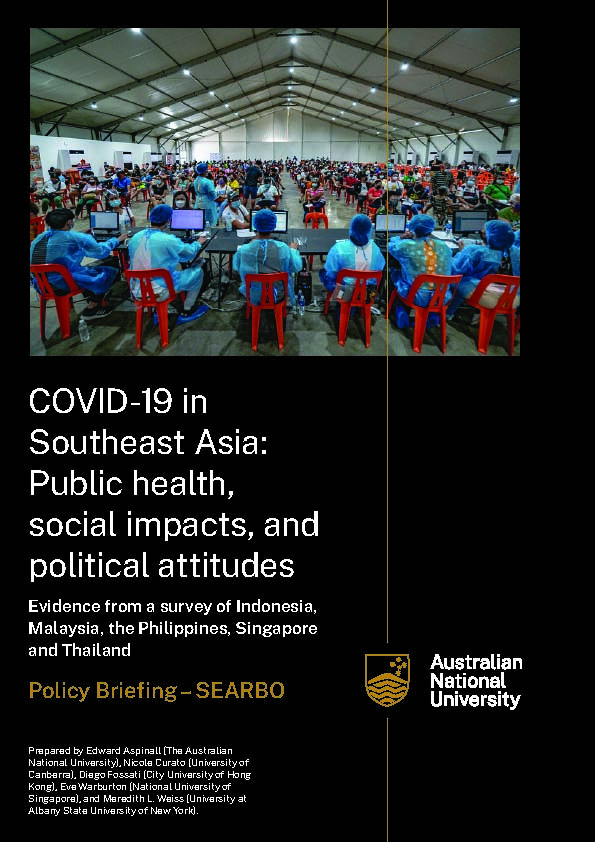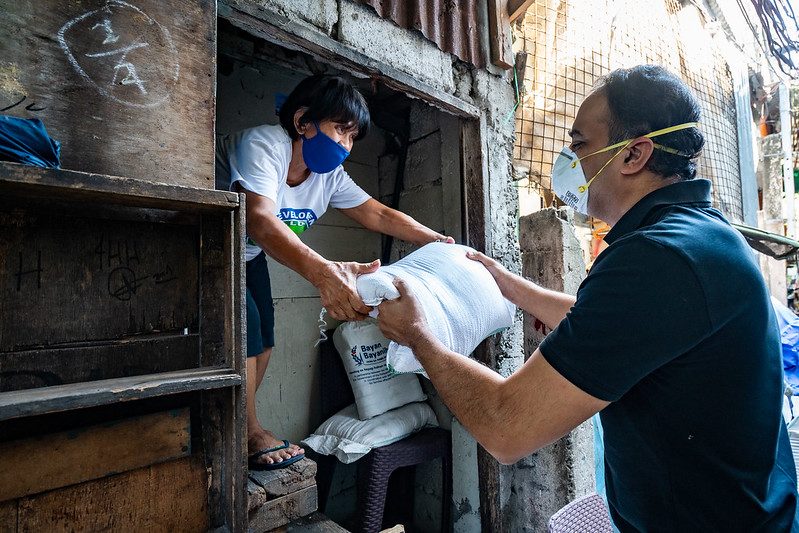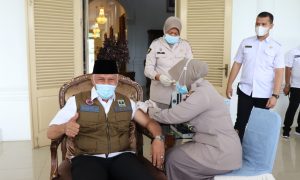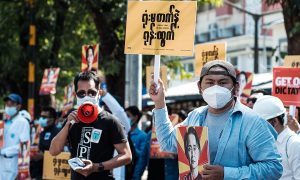How is the COVID-19 pandemic transforming attitudes in Southeast Asia? While the health impacts of the pandemic are tragically obvious, we are only beginning to understand the wider social and political implications of the crisis. Some changes are being introduced from the top, as governments embark on ambitious new programs of social spending and, at least in some cases, claw back on citizens’ rights. But others are potentially occurring among citizens, as the responses to the pandemic affect ordinary people’s attitudes about their own security, the role of government in their lives, and their country’s political system.
In order to understand how this global crisis is shaping Southeast Asian citizens’ views on governance, official health responses, accountability for the crisis, vaccines, democracy versus authoritarianism, and much more, we conducted an online survey from mid-April to late May 2021, collecting responses from more than 6000 respondents across five Southeast Asian countries: Indonesia, Malaysia, the Philippines, Singapore and Thailand.
Click on the cover image below to download the full policy brief.
The report of our key findings, available for download by clicking the image above, shows that populations in the region are extremely anxious about the economic and public health impacts of the pandemic, although there are clear divergences on the intensity and manifestations of these anxieties across countries, and within countries according to demographic traits. Strong majorities across all five countries felt ‘very worried’ about the pandemic, with prolonged economic crisis and its impact on the poor causing the greatest anxieties. However, populations across the region diverge in their attitudes to pandemic policy, the effectiveness of government and health interventions, constraints on personal freedoms, and vaccination.
One dramatic variation is in whether citizens felt more worried about the economic or public health aspects of the pandemic. In Thailand and Indonesia, a majority expressed greater concern with the economic effects, while a majority in Malaysia, the Philippines and Singapore expressed greater concern over public health effects. In all five countries, women tend to weigh public health as a bigger issue than the economic effects of the pandemic, although more women (except in Singapore) are “very worried” about COVID-19’s impact on their personal economic security than are men. Respondents’ economic vulnerability has a significant impact on how they experience and perceive many aspects of the pandemic. The region’s most precarious citizens are the most anxious about the impact of the pandemic, especially but not only, on the economy and their personal financial situation.
Extraordinary measures may in the long run jeopardize civil liberties and constitutional democracy.
COVID-19 and abusive constitutionalism in Southeast Asia: where are the courts?
There is massive variation when it comes to satisfaction with national governments’ pandemic responses, from 85% in Singapore to 41% in the Philippines. Across the region, however, 80% think that relevant actors could have performed better at controlling the pandemic—particularly citizens.
However, citizens are discerning when it comes to accepting constraints on individual freedoms. Many people accept curfews and the need for extra-parliamentary policy interventions, but few are willing to endorse state attempts to muzzle a free and open press in the context of a pandemic emergency. There is also significant variation across countries: for example, strong net support for involving the military and police in government in Indonesia and almost equally strong net disapproval of such a step in Thailand, reflecting that country’s recent experience of—and widespread opposition to—direct military rule. Another striking finding regards support for individual rights in the Philippines: there is relatively strong rejection of restrictions on civil liberties in the Philippines, where President Duterte has made no secret of his disregard for democratic niceties.
All in all, our survey shows that Southeast Asian citizens are not providing carte blanche to their governments to wind back civil liberties and political rights in response to the pandemic, despite obvious signs of accelerating democratic regression across the region.
 Facebook
Facebook  Twitter
Twitter  Soundcloud
Soundcloud  Youtube
Youtube  Rss
Rss 



